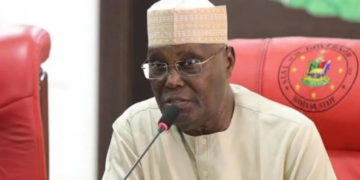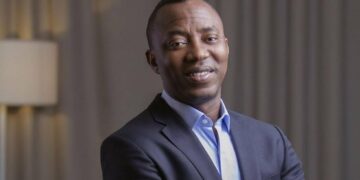Inadequate funding is one of the greatest challenges facing the ministry of education in Nigeria. A breakdown of the budgetary allocation for the ministry of education for one decade shows that the budgetary allocation for the entire ministry of education have been below the recommended UNESCO 20% of the total annual budget for a year.” ~ Volume 4 of the Middle European Scientific Bulletin, published in 2020.
In Nigeria, funding the educational sector has always been one of the least attended-to issues by our Government. States have complained. Local Governments, students have complained. Even lecturers have complained, as attested by the ongoing ASUU strike. A visit to a Government school, even within the city, is enough to convince anyone who does not believe that the educational standard in Nigeria is sliding below average. Students’ desks are broken, sometimes teachers even lack as little as chalk to write lesson notes on the blackboard. What then, would we say about the school libraries? I visited the library of an L.E.A school in FCT recently, and I wondered if I was in a school library, or a prison. The space was so dark and not properly aerated. Okay, let’s even leave the matter of aeration, and discuss what a library is meant to be: a space that holds books, right? I could count the number of books in that library, most being old books donated by kind-hearted organisations, NGOs, and the like. Students were eating and playing in the library, as there was no librarian to even coordinate the affairs! How can education in Nigeria be this bad up to now, when there are so many policies that seem to uphold the value of education? In 1999, the then Head of State, Chief Olusegun Obasanjo, introduced the Universal Basic Education, which was later backed by The Universal Basic Education Commission (UBEC), established in 2004 for free, compulsory, basic education for children between 6 and 15 years. The National Policy on Inclusive Education in Nigeria (2016) aids access to education for diverse learners. All these policies and there are still almost 20 million out-of-school children in Nigeria (UNESCO). And the ones that the Government has managed to put in school are left to either withstand the poor standard, or port to a private school, where they pay exorbitant fees. What if this same education we neglect is the key to unlocking the change we earnestly seek?
How Education Has Transformed Nations
From 1959 to date, Singapore harnessed education in a way that shaped their nation from a barely-noticed state, to one of the most visited tourist destinations in Asia, and the richest Asian country in terms of GDP per capita – IMF. The Government was highly strategic about using education to drive societal change, as expounded in this paragraph from the OECD library:
“Singapore is one of Asia’s great success stories, transforming itself from a developing country to a modern industrial economy in one generation. From Singapore’s beginning, education has been seen as central to building both the economy and the nation. The ability of the government to successfully match supply with demand for education and skills is a major source of Singapore’s competitive advantage. Other elements in its success include a clear vision and belief in the centrality of education for students and the nation; persistent political leadership and alignment between policy and practice; a focus on building teacher and leadership capacity to deliver reforms at the school level; ambitious standards and assessments; and a culture of continuous improvement and future orientation that benchmarks educational practices against the best in the world.”
Prime Minister Lee Kuan Yew, the sitting leader in the late 1950s, specifically stated that the aim of Singaporean education was to “produce a good man and a useful citizen.” Singapore has mastered the art of moving from policy to implementation, to funding, advocacy and partnerships in the educational sector. For China, education goes beyond classrooms to even work rooms. The nation has adopted the “lifelong learning” practice to sustain its growing workforce. They are bent on digitalization, vocational training, and providing adequate learning incentives. Today, we see the results of all these investments in the educational sector. Education may be expensive, but a nation that invests in it, always yields its returns. As the Senior Advisor for Innovation and Digital Transformation at IE University, Enrique Dans said;
“Governments that want to drive change, improve people’s quality of life, reduce inequality and adapt to a rapid digitalization and robotization, start with a radical redesign of education. Thirty years of educational reform have led the country to become a leader in manufacturing: the next stage of reform, in the context of a drastically transformed and redefined economy, aims to take it to world leadership.”
How Can Education Transform Nigeria?
From crime, to economic downfall, to brain drain, and more, it may seem as though Nigeria is a failed nation. However there remains that glint of hope in all her citizens. The question we ask is, what can we use to tackle these challenges? I don’t know about all the solutions, but I know that there is one we can begin with: education. Education can help Nigeria in the following ways:
Ideation: The educated mind sees far. Reading is living. When we read, our mind is exposed to new ideas, new concepts, new opinions, and all these shape ideas of our own. Education raises people who can spur positive change through ground-breaking and feasible ideas. As it is, we have limited minds thinking up ideas for change in Nigeria. Our society has limited our exposure. According to the Secretary General, Women’s Rights Advancement and Protection Alternative (WRAPA), Mrs. Saudatu Mahdi:
“Northern women are brought up in a socialisation that she can only aspire to a certain level – just the ABC level of education and no more. The opportunity of education and exposure are limited and this limits the average woman in Northern Nigeria. She lacks capacity because her self-esteem is taken away.”
Fighting Poverty: Poverty is a mindset. Through education, we can break the barriers of poverty in the mind of many. Nigeria can rejig her national curriculum at this point to teach lessons that proffers solutions to today’s problems. Our current curriculum was designed almost 4 decades ago to solve issues in that era, times have changed and so should our curriculum. And when the people thrive, the nation thrives. They are able to use their wealth to create social impact, supporting the Government in building sustainable solutions for all sectors, while raising the next generation of leaders.
Gender Equality: Gender inequality is a battle we have fought for generations. Even amongst grown and seemingly educated people. Many live at war with the other gender because of the traditions and beliefs they have been raised with. Education goes beyond the intellectual, and that is why it is expensive and continuous. Social, and moral education will help us move past cultural beliefs that hold us down, and into modern thoughts that shape systems.
We’ve got the edge. Get real-time reports, breaking scoops, and exclusive angles delivered straight to your phone. Don’t settle for stale news. Join LEADERSHIP NEWS on WhatsApp for 24/7 updates →
Join Our WhatsApp Channel









